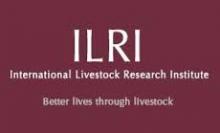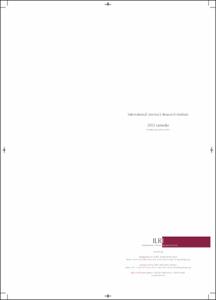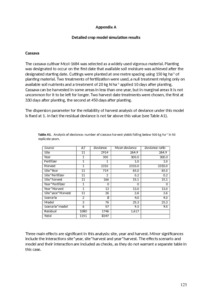Location
Vision, mission and strategy
ILRI's strategy 2013-2022 was approved in December 2012. It emerged from a wide processof consultation and engagement.
ILRI envisions... a world where all people have access to enough food and livelihood options to fulfil their potential.
ILRI’s mission is... to improve food and nutritional security and to reduce poverty in developing countries through research for efficient, safe and sustainable use of livestock—ensuring better lives through livestock.
ILRI’s three strategic objectives are:
- with partners, to develop, test, adapt and promote science-based practices that—being sustainable and scalable—achieve better lives through livestock.
- with partners,to provide compelling scientific evidence in ways that persuade decision-makers—from farms to boardrooms and parliaments—that smarter policies and bigger livestock investments can deliver significant socio-economic, health and environmental dividends to both poor nations and households.
- with partners,to increase capacity among ILRI’s key stakeholders to make better use of livestock science and investments for better lives through livestock.
This is ILRI’s second ten-year strategy. It incorporates a number of changes, many based on learning from the previous strategy (2000–2010, initially produced in 2000 and modified in 2002), an interim strategy (2011–2012) and an assessment of the external and internal environments in which the institute operates.
Members:
Resources
Displaying 571 - 575 of 1152Genesis reversed: climate change impacts on agriculture and livelihoods in mixed crop-livestock systems of East Africa
Climate-induced livelihood transitons in the agricultural systems of Africa are increasingly likely. There has been only limited study on what such transitons might look like, but it is clear that the implicatons could be profound in relaton to social, environmental, economic and politcal efects at local and natonal levels.
Principles and practices to integrate livestock into Ethiopia's rainwater management systems
During the 2011 Third International Forum on Water and Food (in South Africa) Amare Haileselassie from ILRI reflected on ways that livestock can be integrated into rainwater management systems and strategies in Ethiopia. The overall aim is to improve 'livestock water productivity' through the adoption of various practices at farm and landscape levels.
Multi-stakeholder and innovation platforms: Group reports from the IFWF3
One of the 'learning to innovate' sessions in the 2011 Third International Forum on Water and Food looked at experiences within the CPWF with multi-stakeholder Platforms (MSP) and Innovation Platforms (IP). This video has the group reports that discussed: 1) How do we scale out such platform processes? 2) What are the most significant lessons and messages in this area for 'research for development'? 3) What is new and innovative in the experiences shared? and 4) What are the research questions on platforms that could be addressed across CPWF Basins?
Les plateformes d’innovation de la Volta—pour une production agricole efficace et concertée
Les plateformes d'innovation sont une nouvelle approche pour une concertation entre acteurs en vue d'appréhender l'ensemble des facteurs affectant une chaîne de valeur agricole. Hubert Some de la SNV nous offre son point de vue sur les expériences en cours dans le bassin de la Volta. Cette entrevue fait partie du projet V2 ‘Gestion intégrée des eaux pluviales pour les écosystèmes agro-pastoraux’ du Programme de Défi pour l’Eau et l’Alimentation (CPWF) dans le Bassin de la Volta.






